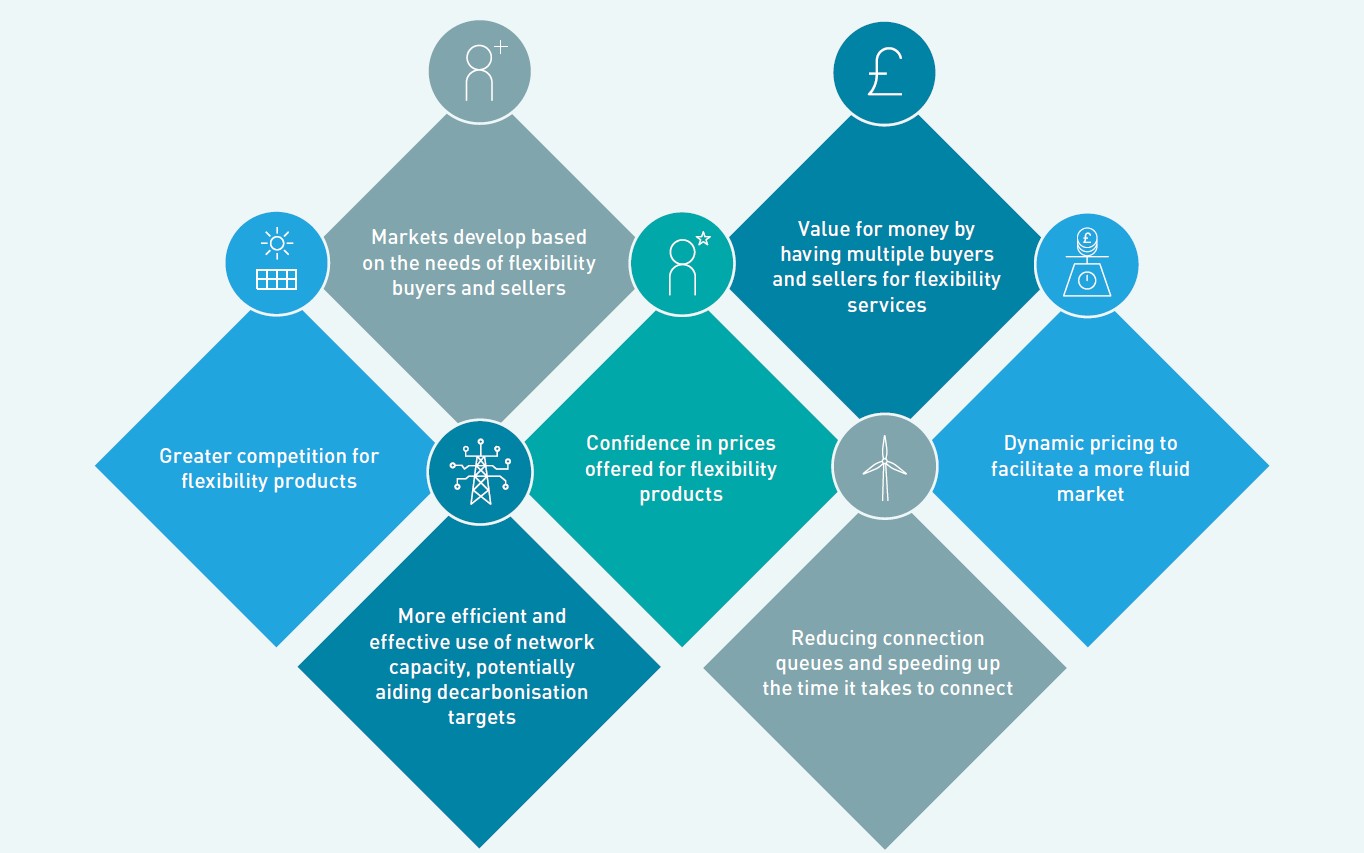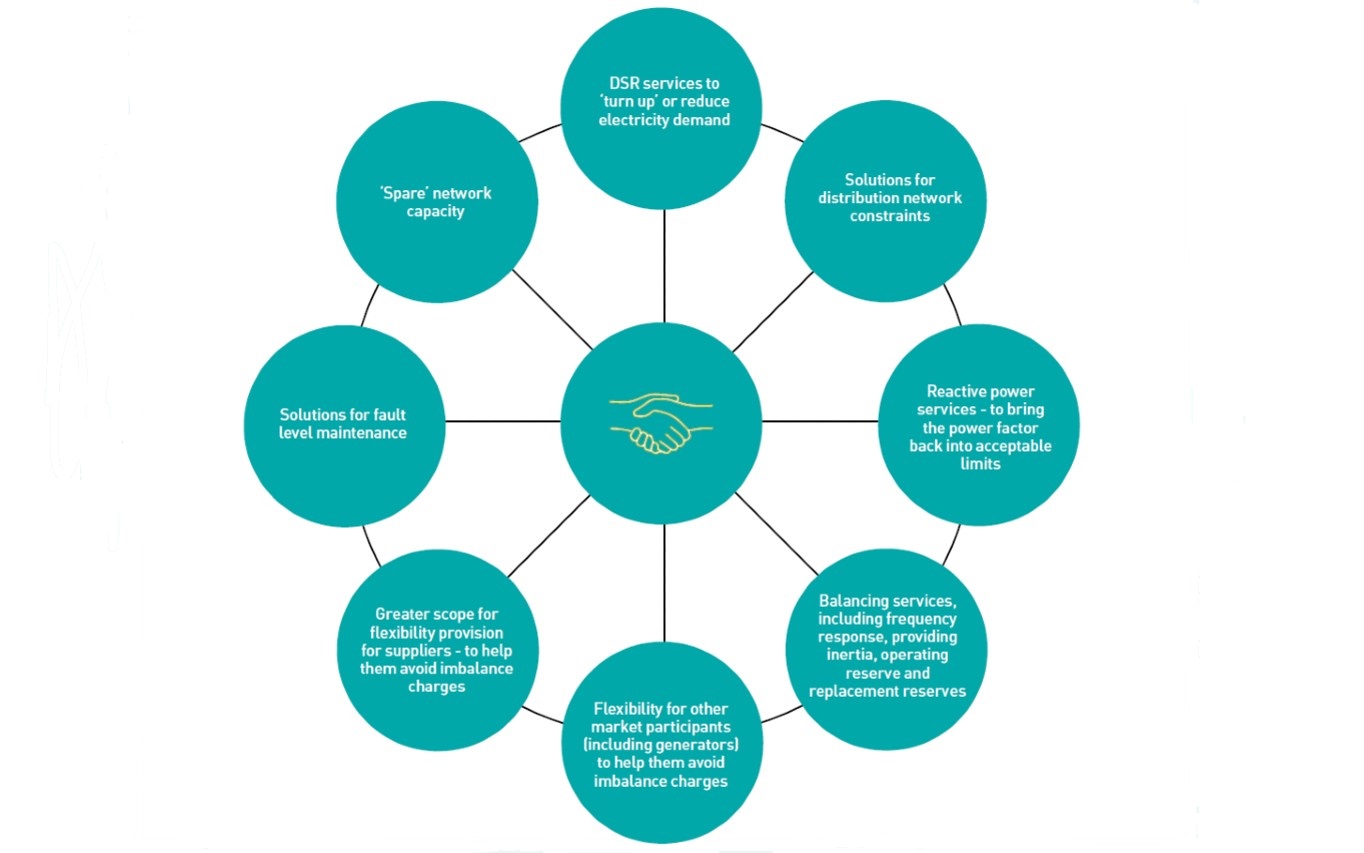Elexon’s support for new electricity flexibility exchange
Elexon is providing support to technology company Electron which has been awarded funding to trial an exchange where offers of electricity flexibility can be traded.
Flexibility generally includes offers to provide ‘demand side response’ where consumers reduce or increase consumption when asked to do so by a network owner or supplier. They do this in exchange for payments or other benefits.
Distributed generators, battery storage, and electric ‘vehicle to grid’ technology are other examples of where flexibility which can be used to help keep the electricity system in balance.
Electron’s flexibility exchange
Electron has won funding from the Department for Business, Energy & Industrial Strategy (BEIS) to lead a consortium which will develop a multiproduct flexibility exchanged called TraDER.
“An exciting development”
Elexon Chief Executive, Mark Bygraves, said: “We are pleased to support the development of electricity flexibility exchanges as they could play an important role in helping businesses and other flexibility options, such as storage providers, to trade electricity locally.
“TraDER is a crucial step in unlocking the full value of flexibility by integrating assets into a smart, efficient and flexible energy system. The wealth of experience brought by all of the project partners, combined with the innovative approach to trading, makes this initiative an exciting development in delivering a whole system approach to trading.”
Our proposals for nationwide flexibility exchanges
Elexon is proposing that nationwide ‘flexibility platforms’ are set up. The platforms would work like markets for trading a variety of other commodities, where software provided by independent companies allows a variety of products to be traded.
Unused network capacity could also be offered for sale between generators that are either connected to the networks, or are looking to connect. The exchanges can also encourage new business models to enter the energy market, offering new products and services which benefit consumers.
Greater use of flexibility will help local electricity distribution networks to reduce the cost of managing supply and demand. They can also encourage greater efficiency in how capacity is allocated and used. Overall the exchanges could play an important role in helping the electricity system contribute to the UK’s net zero emissions target.
Our support for winners of the BEIS FleX competition
Last year BEIS announced its FleX competition for projects to win funding to trial flexibility exchanges.
Our support for winners of the funding includes advice on:
- How the exchanges can be set up and integrated with existing electricity market arrangements
- Changes to BSC rules that may be needed so the exchanges could become common place and introduced at scale across GB
- How exchanges can publish transparent data on how much electricity has been bought and sold
What can be traded on flexibility platforms
Services and products that provide value right across the supply chain from ‘connection to the plug’ can be traded on flexibility exchanges. These include:
- DSR services to ‘turn up’ or reduce electricity demand.
- Solutions for distribution network constraints.
- Reactive power services – to bring the power factor back into acceptable limits.
- Balancing services, including frequency response, providing inertia, operating reserve and replacement reserves.
- Flexibility for other market participants (including generators) to help them avoid imbalance charges.
- Greater scope for flexibility provision for suppliers – to help them avoid imbalance charges.
- Solutions for fault level maintenance.
- Spare’ network capacity.
Benefits of flexibility exchanges

- Markets develop based on the needs of flexibility buyers and sellers.
- Value for money by having multiple buyers and sellers for flexibility services.
- Greater competition for flexibility products.
- Confidence in prices offered for flexibility products.
- Dynamic pricing to facilitate a more fluid market.
- More efficient and effective use of network capacity, potentially aiding decarbonisation targets.
- Reducing connection queues and speeding up the time it takes to connect.


